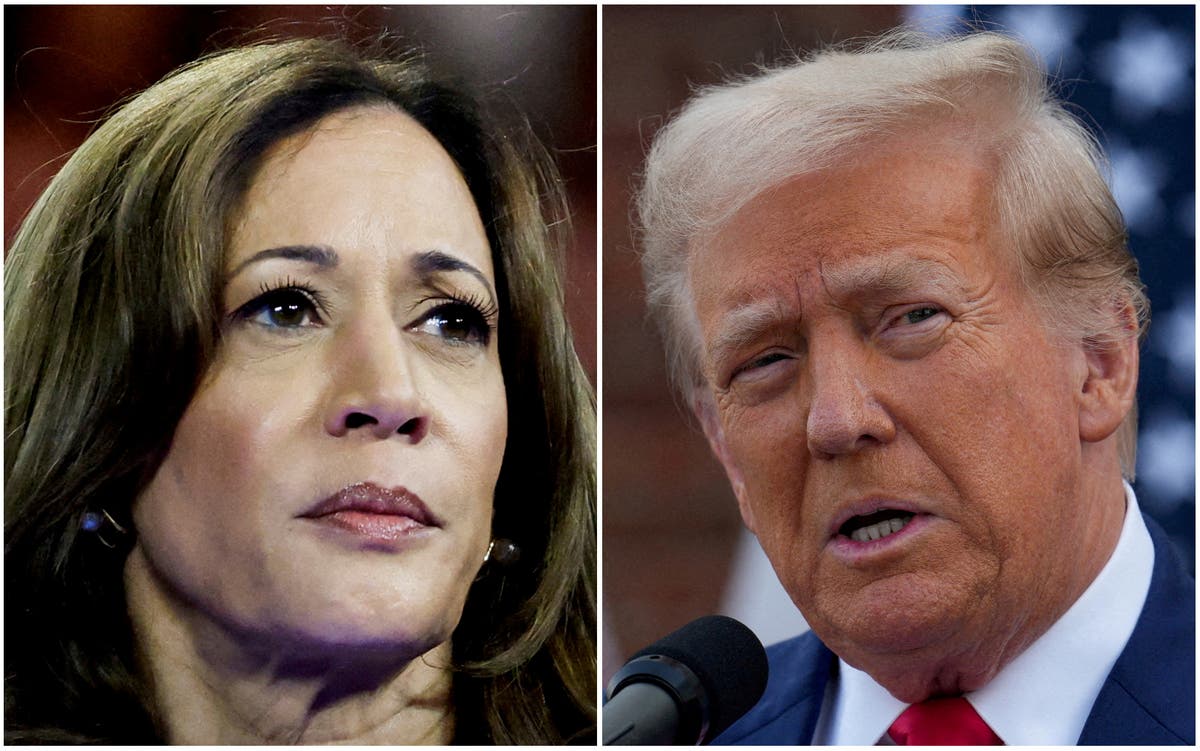Donald Trump’s Controversial Call for Military Action Against US Citizens
In a recent interview with Fox News anchor Maria Bartiromo, former President Donald Trump made headlines by suggesting that he would consider deploying troops against American citizens if he deemed it necessary. This statement, made in the context of rising political tensions and ongoing debates about civil unrest, has sparked significant controversy and raised questions about the implications of such a stance.
Context of the Statement
Trump’s comments came during a period of heightened political polarization in the United States, as he and his election rival, Kamala Harris, prepare for a crucial showdown in the upcoming presidential election. Both candidates are focusing their efforts on swing states like Pennsylvania, where voter sentiment can shift the balance of power in the electoral landscape. Amidst this backdrop, Trump characterized a segment of the American populace as “the enemy from within,” referring to what he described as “sick people, radical left lunatics.”
This rhetoric is not new for Trump, who has often painted his political opponents and their supporters in stark, adversarial terms. However, the suggestion that military force could be used against American citizens marks a significant escalation in his rhetoric and raises alarms about the potential for state violence against dissent.
The Implications of Calling in the Troops
The idea of deploying the National Guard or military forces against civilians is fraught with legal and ethical implications. Historically, the use of military force against citizens has been a contentious issue in American history, often associated with civil rights violations and authoritarian governance. The Posse Comitatus Act of 1878 restricts the use of federal military personnel to enforce domestic policies, underscoring the importance of maintaining a clear distinction between military and civilian law enforcement.
Trump’s comments could be interpreted as a signal to his base that he is willing to take extreme measures to maintain order and control, particularly in the face of protests or civil disobedience. This approach could further polarize an already divided electorate, potentially inciting violence or unrest among those who feel targeted by such rhetoric.
The Reaction from Political Opponents
Political opponents and commentators have responded with alarm to Trump’s statements. Critics argue that invoking military action against American citizens undermines democratic principles and could lead to a dangerous precedent. Kamala Harris, in particular, has positioned herself as a champion of civil rights and social justice, and Trump’s comments provide her with a potent counter-narrative to rally voters who are concerned about authoritarianism.
Moreover, the recent arrest of an armed man at a Trump rally, who allegedly had intentions of causing harm, adds a layer of urgency to the conversation about political violence and the responsibilities of leaders to denounce such actions. The suspect, who claimed to be a Trump supporter, highlights the potential for extremist behavior to be emboldened by inflammatory rhetoric.
The Broader Political Landscape
As the election approaches, both Trump and Harris are intensifying their campaigns, with each seeking to galvanize their respective bases. Harris has unveiled a series of policies aimed at attracting key demographics, including Black male voters, while Trump continues to leverage his populist appeal. The stakes are high, and the political climate is charged with anxiety and uncertainty.
Polling data indicates that the race remains a dead heat, with both candidates vying for the support of undecided voters. In this context, Trump’s comments about military intervention could resonate with his base, who may view such statements as a show of strength. However, they also risk alienating moderate voters who may be uncomfortable with the implications of using military force against fellow citizens.
Conclusion
Donald Trump’s recent remarks about potentially calling in troops against American citizens have ignited a firestorm of debate about the limits of political rhetoric and the responsibilities of leaders in a democratic society. As the election draws near, the implications of such statements will likely continue to reverberate through the political landscape, influencing voter sentiment and shaping the narrative of the campaign. The challenge for both candidates will be to navigate this charged atmosphere while addressing the concerns of a divided electorate.
In a time when the nation is grappling with issues of civil rights, social justice, and political violence, the call for military action against citizens raises profound questions about the future of American democracy and the values that underpin it.


